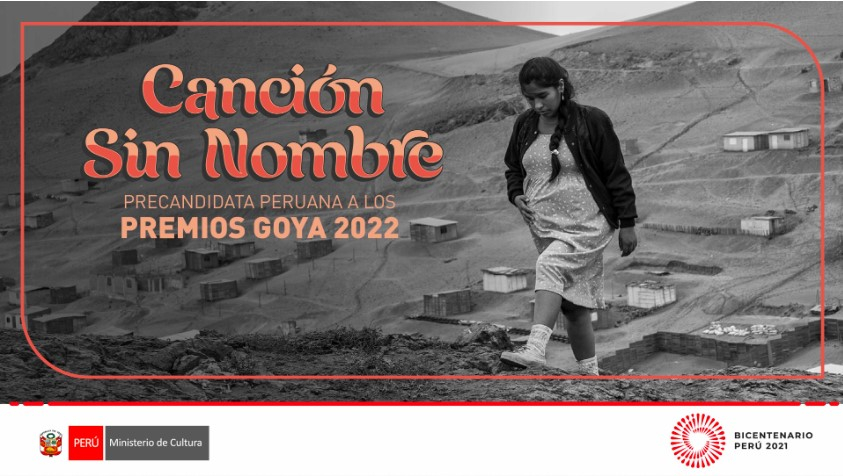He peruvian cinema It continues to be reborn and gain visibility in festivals, traditional venues and streaming, although it still needs to give it sustained stability. For example, 'Yana-Wara', an Aymara film directed by Óscar and Tito Catacora, winner of three Apreci awards and two categories at the PUCP Lima Film Festival, will be projected on the giant screens this Thursday, April 4. On this occasion, Pablo Hernandezjournalist and professor of Audiovisuals at the Jaime Bausate y Meza University, offers us an interview to review the current situation in the seventh art.
Through his first book, 'Plan 7: my film reviews' (Caja Negra, 2023), Hernández Menéndez explains—through short reviews—the weaknesses and successes of Peruvian and international productions. He also gives us his stance on whether streaming feature films deserve Oscar nominations, as well as his impressions of 'Oppenheimer' and the controversy surrounding 'Poor Creatures'.
YOU CAN SEE: Elton Honores: “More screen is given to autobiographical novels, the rest seems marginal”
film criticism
—Unlike literary criticism, why is film criticism not such a common task in Peru?
—It is due, in part, to the fact that literary criticism is older than film criticism. Literature is hundreds of years old; cinema, 115 or 120. Since the printed media appeared, there has been literary criticism, a whole tradition. However, when does film criticism begin? Around the 1910s or 1920s, with the beginning of narrative films. Film reviews continue to evolve in search of their own form of language.
—There is a widely reproduced fallacy. It is said that in our country not many science fiction books are written because we are not scientifically developed. In the case of cinema, isn't there an abundance of criticism because not many films are created in Peru? Is this related?
—What happens is that here, in Peru, we are more consumers of cinema than filmmakers. In recent years, Peruvian productions have just been reborn. This renaissance also generates the emergence of YouTubers, videobloggers, and people interested in commenting on movies.
The problem is that commentators sometimes lack the proper training to do that job. They are enthusiasts, film buffs, but they lack knowledge of cinematographic narrative, audiovisual language, acting, and dramaturgy.
—In your book, 'Plan 7: my film reviews', we observe a defined structure in each review.
—I present each opinion with solid arguments. It is not an analysis. If it were, it would be 2,000 words, it would be longer. The criticism helps the reader see the film with different eyes. I try to find aspects and negatives. I don't go for the devastating or saying that everything is bad. Even the least accomplished feature films present positive aspects. There are also praised films with imperfections. I avoid adjectives, as they can be superfluous. I prefer support.
—And how did you come up with the name 'Plan 7: my film reviews'? What was your reference?
—Its origin dates back to 'Plan 9 from Outer Space', a science fiction film directed by Ed Wood. The filmmaker interested me from the biopic that Tim Burton made, with Johnny Depp as the protagonist. I used the name 'Plan 9', but I changed the 9 to 7, in reference to the seventh art.
YOU CAN SEE: 'Fieras', stories by Mariangela Ugarelli: the dispute for supremacy between man and beasts
Peruvian cinema
—Almost all Peruvian film reviews only add 2 stars out of 5, except for 'Autoerótica' (Andrea Hoyos, 2021), with 3.5 stars. What is the Achilles heel of national productions?
—The script is not worked well. The story itself falters. On a technical level, Peruvian films today are competent: lighting, editing, sound and acting. Returning to the script, sometimes the characters lack motivations, there are no solid conflicts. And that detracts from the feature film. Above all, it happens with commercial films, those that come from Tondero, La Soga…
—If the known formulas of national cinema change, would there be positive effects on the audience?
—There are many factors… For example, it is criticized that the same group of actors is always involved, that the same faces appear. Cinema is not only an art, but also a business. Obviously, the businessmen who invest want the film to be profitable in the first place. Therefore, the stories are not complicated, always with happy endings, and comedy moments abound. It's part of the formula. There are clichés, stereotypes. Most commercial cinema is made in Lima or shows you the point of view of the Lima native when he is outside the capital. That's where the weaknesses are. If we give the opportunity to films created outside of Lima (for example, from Puno, Trujillo, Piura or Arequipa), the public would have a variety to choose from and enjoy.
—What Peruvian film released in recent years would you consider that escapes clichés?
—I really liked a Peruvian film, but it didn't come to theaters due to the pandemic. I'm talking about 'Canción sin nombre', by Melina León, in black and white, it was posted on Netflix. It is set in Peru, at the end of the 80s. It denounces the trafficking of babies and how they are sold to foreign couples. It is a non-concessive theme, it does not seek easy laughter, it motivates reflection, without a happy ending, the opposite of current commercial cinema.

The future of streaming and the Oscars 2024
—How is the spread of streaming changing the way we watch movies? What is your impression?
—Currently, Netflix and Amazon have emerged, platforms that are alternatives for viewers. I think that, perfectly valid, it is a new mode of consumption. I don't see streaming and traditional cinema, on a giant screen, getting in the way. They can coexist. The same thing happened with film and television. When TV arrived in the 1950s, everyone predicted the end of cinema, but that was not the case.
—And do movies from streaming platforms deserve to compete at the Oscars?
-Yes of course. What changes is only the means of dissemination, they are still cinema. Now people watch it at home, through computers, cell phones. There should be no discrimination in this regard. Although at the Oscars, apparently, there is: so far, no film released via streaming has won the statuette in the best film category. Until now, I insist…
In Hollywood there is a certain misgiving about streaming, I think that situation is going to change over the years.
—Will 'Oppenheimer', the top winner of the 2024 Oscars, transcend time or be forgotten?
—What the Hollywood academy has done is recognize Christopher Nolan, a prestigious filmmaker. He has given air to the academy, accustomed to banal formulas, and highly questi
oned for that reason, too. Unlike recent commercial cinema, which appeals to remakes and sequels, 'Oppenheimer' was a new proposal, original content. I've seen her twice. Although it has his weaknesses: Nolan does not design his female characters well. As a biopic, however, the feature film will be remembered.

—'Poor Things', or 'Poor Creatures', has been a trend on social networks due to its explicit content. Will the effective power defeat the suggestive? What is expected?
—The explicit thing is not new. I remember 'Based Instincts' (Paul Verhoeven, 1992), a film with Michael Douglas and Sharon Stone. Erotic thriller, a success. Something similar happens with 'Poor Creatures'. There is eroticism, yes; but also a curtain of emancipation, female empowerment, which aligns the film with today's movements.
Those who distribute the film highlight that sexual aspect so that people go to the movies. It's intentional. At the end of the day, it's business.
—Not much has been said about its science fiction nuance…
—Like the references to Frankenstein's monster. It seems that everything has been concentrated on Emma Stone and her life journey, the rest was left aside. I was taken aback by the surreal, like the dog with the duck's head. The comments, more than anything, pointed to morbidity.
'Plan 7: my film reviews' It is available at the following Crisol locations: Lima, óvalo Gutiérrez, Jockey Plaza, San Miguel, Diagonal Miraflores and Real Plaza Salaverry.
#Pablo #Hernández #criticizes #Peruvian #cinema #quotThe #script #falters #faces #appearquot

